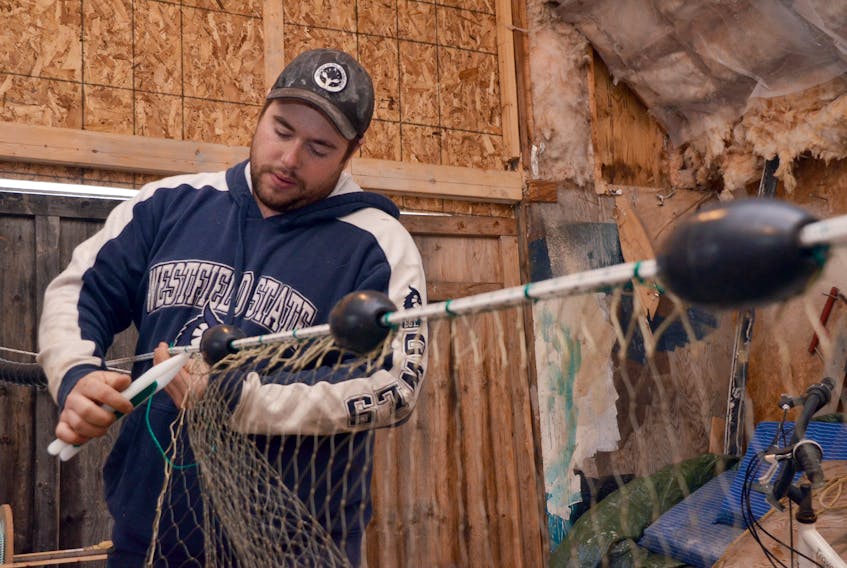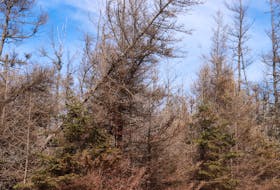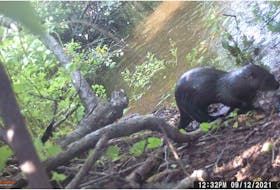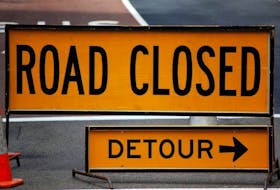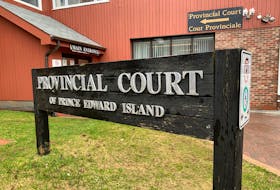BRAESHORE, N.S. — To the crackle of scrap plywood burning in a welded woodstove Ben Anderson counted stitches under his breath in a Braeshore, Pictou County, shop on Wednesday.
The shuttle deftly moved between his 25-year-old hands weaving together the brand new cork rope and gill netting. The bottom of the 28-metre-long drift net will get weighted lead rope so when he runs it over the stern of the Short Fuse in the spring it will float upright in the water.
Each of the thirty drift nets he’s making takes a full day in the shop.
“Of course I’m thinking about it,” said Anderson, not looking up from his stitching.
“Everybody’s losing sleep.”
Environment Minister Gordon Wilson has until Tuesday to decide whether to allow Northern Pulp to build a new effluent treatment facility that will pump up to 85 million litres of treated wastewater into the Northumberland Strait.
The pipe runs by the Caribou wharf, home port to 68 fishing boats.
For five generations Anderson’s family has made their living fishing this area of the Strait.
“At least five,” he said.
“This has been a steady income for people in this area for a long time. This isn’t just about my generation, it’s about the future. The effects might not be immediate but it is pollution and it’s got to have harmful effects.”
Impacts and buy-ins

The potential impact of Northern Pulp’s effluent pipe on the Northumberland Strait is a subject of hot debate. Anderson has heard both sides.
He weighs the arguments against the fact the Pictou Landing First Nation was told a half century ago that Boat Harbour wouldn’t be damaged when it was turned into an effluent treatment lagoon.
“And look what happened there,” he said.
Fishing may be an addiction but it’s also a heavily capitalized business.
He began buying into the fishery two years ago with a core herring and mackerel licence.
Then he bought a lobster licence farther up the shore in Pugwash.
The boat and licences tallied up to $450,000.
Then last fall he brought the Short Fuse into the shed and took the saw to it.
'The tale the old fellows tell'
Armed with the knowledge of generations of his family of boat builders he radically changed the vessel – widening it, lengthening it to 12 metres and straightening out the hull’s run back aft so it will hold up higher in the water with a load aboard.
“All by eye,” he said of recreating his boat’s lines without a marine engineer.
The changes allow him to travel to chase fish.
Through May and June he’s all over the Northumberland Strait chasing mackerel with gill nets.
By July he can expect to be up in the Gulf of St. Lawrence running lines of hooks over the stern rather than nets.
“They say that when the water warms the film over their eyes goes and so they can see a net and won’t mesh in it,” said Anderson.
“At least that’s the tale the old fellows tell to explain (the need to change to hook and line). It holds up though.”
Then he heads down to Pugwash in August for two months fishing lobster.
For all the debt he has already he’s looking to take on more by buying a scallop licence that would extend his fishing season to Dec. 15.
“That’s the next purchase as I build my enterprise,” said Anderson.
All the creatures he chases survive in an interdependent ecological web that make the politics of pollution pale in comparison.
The effect of the latter on his enterprise and ecosystem it depends upon is a worry that compounds on other worries – interest, international markets for his product, maintaining equipment and whether the fish will be there when he comes for them.
Beyond any impacts of the pipe he also worries about perception.
“At the end of the day we catch food,” said Anderson.
“And you’re going to dump toxic chemicals in the water that food lives in and then we’re going to catch it and sell it to people to eat.”
Want to join the conversation? Comments are open on this article at SaltWire.com for members.
RELATED:

